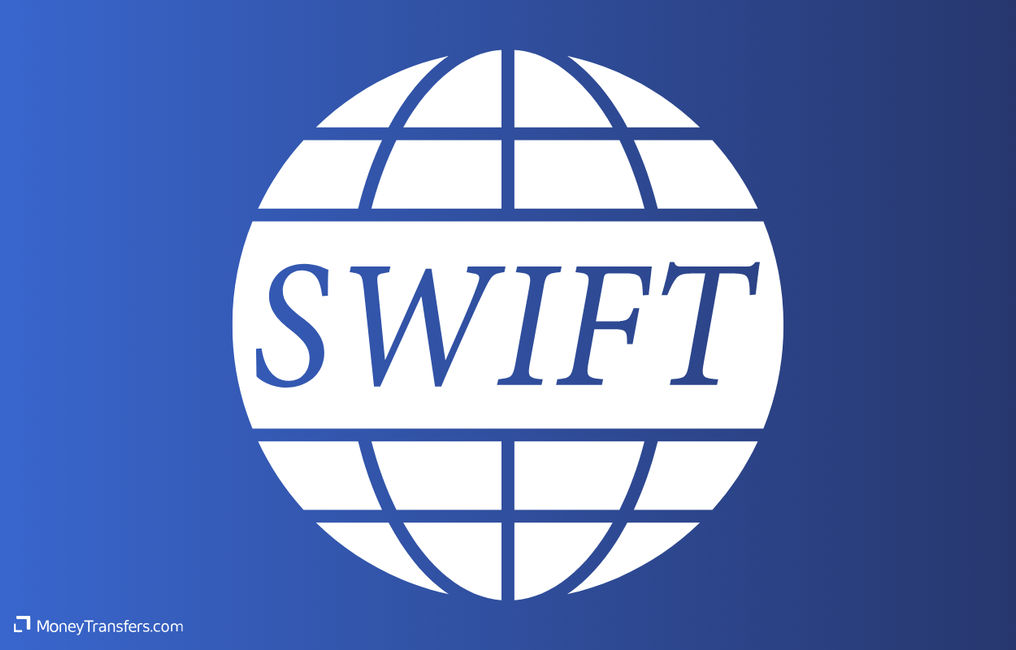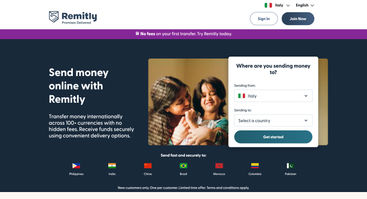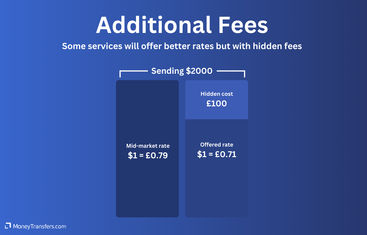International Wire Transfers
Wire transfer is a process of sending money over the "wire". This originates from the days of telegraphic transfers. Now, it is used as a generic term for electronic transfers.
Wend making global transfers, it's one of the most popular, safe, and reliable ways to fund the transfer.
Here, you will find our top guides about wire transfers. We'll also look at what wire transfers are, how they work, and the best transfer companies to use.
Wire transfers explained
A wire transfer is the electronic transfer of funds from one person to another via a bank account or a money transfer account held with a specialized provider (e.g. a credit union).
There is no physical transfer of money between banks or financial institutions when conducting a wire transfer.
In fact, only information is exchanged between the institutions about the recipient, their account details, and the transfer amount, with the transfer itself happening electronically.
The goal of international wire transfers is the quick transfer of funds, eliminating the delays caused by mailing and clearing of checks.
While people often use the terms “wire transfer” and “bank transfer” interchangeably, this is not 100% accurate.
Wire transfers are used by both banks and non-banking financial institutions. This means that all bank transfers are wire transfers, but not all wire transfers are bank transfers.
The difference between wire transfers and bank transfers
The two terms wire transfer and bank transfer are often used to describe the same thing, but this is not always the case.
A bank transfer: is a term used to describe the process of transferring money from one bank account to another. This transfer could happen between two different types of bank accounts of the same person (for instance from a savings account to a checking account), but more commonly the term refers to the process of transferring funds from one location to another (even overseas) via banks.
An international wire transfer: is a more generic term that refers to sending money electronically from one location to another. So, we can say that a bank transfer is a type of wire transfer, along with other types of wire transfers as well.
For example, to send money from the US to France you may use a bank transfer or you may wire it through Wise, XE, or another money transfer provider.
How do wire transfers work?
The way wire transfer is made depends on your location. But mostly, wire transfers are sent over SWIFT or SEPA networks.

SWIFT network
The majority of international wire transfers are processed via the SWIFT network.
The Society for Worldwide Interbank Financial Telecommunication (SWIFT) is a secure messaging system used by banks to exchange information quickly and securely, including instructions for wire transfers.
This network spans 200 countries and includes over 10,000 banks and financial institutions.

SEPA network
If you live in Europe, your international wire transfer is likely to be processed as a SEPA payment.
SEPA (Single Euro Payments Area) operates in a similar way to the SWIFT network, but its purpose is to provide low-cost and fast Euro-denominated transfers to the 36 countries that are part of the group.
All 27 EU states are members of this group.
When you send a wire transfer, the instructions are sent to the recipient’s bank either directly or through an intermediary bank.
There are costs associated with using the network, which can vary depending on the currency and amount being sent, so be sure to check before deciding on how to wire money.
Most money transfer companies enable international wire transfers in the same manner, but they operate a bit differently.
They employ specialized technologies that connect local banks across the world, helping to reduce costs and transfer times.
We will talk more about choosing the best money transfer providers in the upcoming sections.
What you need to know about wiring money internationally
Wiring money internationally is a popular way of sending money abroad.
The electronic nature is this type of transaction makes sending money via wire transfer fairly hands-off, requiring you only to know your recipient’s name, bank details, and the sum you are sending abroad (we have a full guide on details needed here).
However, there are a few caveats to wire transfers you may want to consider when deciding if this is the right option for you:
Wiring money internationally via your bank can be expensive: An international wire transfer processed via your bank can incur large fees (anywhere between £8 to £40), as well as a high markup on the interbank exchange rate. You may also need to take into account any fees likely to be charged by your recipient’s banks, which could leave them with much less money than you meant to send.
One-off sums vs frequent smaller amounts: Typically, wiring money internationally will work out cheaper if you can send a larger sum in one go than incurring fees on smaller sums sent multiple times.
Benefits and drawbacks of using wire transfers
Wire transfers offer a convenient and secure way to transfer money across borders, which is why they are one of the most popular ways of sending money.
Whether you want to send funds to your family living overseas or to one of your suppliers in another country, wiring funds is a simple and efficient money transfer method.
Here are some of the pros and cons of using wire transfers when transferring your money:
Pros
Cons
Top transfer companies to wire money abroad
These days, it isn’t just traditional banks that can initiate a wire transfer abroad.
Money transfer providers are well-equipped to move your funds online, often for lower fees and more competitive exchange rates.
Below are some of our top recommended transfer companies in a bit more detail.

XE has a large distribution network, supporting transfers in 60 currencies to over 170 countries worldwide.
This online money transfer is a popular and trusted name in the industry with no transfer fees for sending money internationally, although their exchange rate markup can be higher than some other providers in some cases.
Transfers can take anywhere between 1 – 4 working days, depending on the specifics of your transfer.

Wise is an extremely well-known online money transfer operator, with over 8 million users worldwide.
Wise is popular for its policy to always provide transfers at the mid-market rate, with a transparent fee structure that clearly explains the fees you’ll be charged for any international transfer.
Transfers can take anywhere from minutes up to 5 working days, taking longer if you pay for your transfer via a bank account.
Here's our video review of Wise


Supporting transfers to over 150 countries across the globe, WorldRemit is popular for its versatile delivery options, including cash pickups, mobile airtime top-ups, and bank transfers.
With over 2 million people using WorldRemit’s services in the last year alone, this is a well-trusted company supporting a wide range of transfer options.
Transfers with WorldRemit could be instant, or it could take up to 3 working days for your recipient to receive the funds in their account.
Here's our video review of WorldRemit


OFX is known for offering competitive exchange rates with no transfer fees, making it a popular choice for affordable international transfers via the company’s user-friendly online platform or mobile app.
With OFX, transfers will typically take between 1 and 5 days to be processed.
Fees range between 0.4% and 1.5% which is a great deal less than what banks charge for foreign currency.

Remitly supports transfers to over 50 countries worldwide and has over 140,000 agent locations worldwide to support in-person transfers and cash pickups.
Remitly is well-known for providing high-quality service with a range of payout options, even including home delivery for added convenience for your recipient.
Transfers with Remitly can take minutes, or between 1 and 3 working days for a transfer with lower fees.
Sending an international wire transfer
The wire transfer process typically works as follows:
Decide on a money transfer provider
Gather all the information you need
Familiarise yourself with the fine print
Fill out the wire transfer forms
Track your wire transfer
Wire transfer fees
International wire transfers via bank, despite their convenience, are not always the cheapest way to send money.
When making an international wire transfer, the two costs you will have to look out for are exchange rate markups and fixed transfer fees.
Exchange rate markups
Banks and financial institutions charge a markup on the mid-market rates. Banks are known to charge 4-6% on top of it, whereas specialized money transfer providers often keep their margin at 0-2%.
It’s important to before you go ahead with the transaction, especially if sending a large amount of money as a small percentage increase can cost you a lot of money.
Fixed fee
To make a wire transfer, you may have to pay a fixed fee to the bank or provider.
The fee can range anywhere from $15 – $45 depending on the bank or payment provider you choose.
Banks typically charge both a fixed fee and an exchange rate margin on wire transfers.
Wire transfer fees can be quite high depending on the number of intermediary banks involved.
However, many money transfer providers charge only a fixed fee and no exchange rate margin.
This fee is sometimes also much lower than you’ll find with a bank. Again, it is .
However, it's worth noting, that regardless of the service you use, some banks and money transfer providers will have hidden fees.
These fees are usually added at the end of your transfer and can add up very quickly.

So... what is the cheapest way to wire money abroad?
Based on our analysis of 50+ money transfer companies, we found that Key Currency is the cheapest money transfer company to wire money abroad.
As an example, for transfers from the US to the UK, they appeared 100% of the time in our comparison system, as the cheapest provider to use.
Their exchange rates are just 0.25% of the mid-market rate and offer low fees on international transfers.
How to avoid wire transfer fees?
The best way to avoid wire transfer fees is to look for a service that operates at a mid-market rate and offers minimal fees.
You can get the lowest fees for your transfer by comparing money transfer services using our form below.
Get the best rate and avoid wire transfer fees
Wire transfers speed
International wire transfers can take anywhere between 1 – 5 days depending on various factors including the origin and destination country, the amount being transferred and the currencies used.
Many non-bank transfer providers can reduce wire transfer times by utilizing technology that connects local bank accounts across the world.
Some even offer near-instant transfers for users transferring money between countries in which they specialize.
So... what is the fastest way to wire money abroad?
Based on our analysis of 50+ money transfer companies, we found that Currencyflow is the fastest money transfer provider to wire money abroad.
As an example, for transfers from the US to the UK, they appeared 100% of the time in our comparison system, as the fastest provider to use.
Their exchange rates are just 0.25% of the mid-market rate and offer low fees on international transfers.
More on intenrational transfer speed
Alternatives to wire transfers
If you don't want to send a wire transfer, you have a few other options available.
Online money transfer provider
Online money transfer providers are an extremely popular option for sending money internationally and tend to be a much cheaper and faster way to wire money internationally.
Money transfer providers will either charge a set fee for your international transfer at the mid-market rate (for example Wise), no fees but a markup on the exchange rate (for example OFX and XE), or a mixture of both (for example Instarem and WorldRemit).
Walk-in transfer providers
P2P payment apps
Multi-currency accounts
Debit / credit transfers
A bit more on wire transfers
What is a domestic wire transfer?
What is the difference between ACH and wire transfer?
How to track a wire transfer as a receiver?
Help & FAQ
Get answers to the most common questions asked when sending money abroad. Covers costs, fees and the best way to compare.
Let's recap: should you wire money internationally?
A wire transfer is a method of transferring money electronically between people or businesses across the world.
It only involves the exchange of information between the institutions about the recipient, their account details, and the transfer amount.
This means that a bank transfer is a type of wire transfer, but there are other non-banking financial companies that can also facilitate wire transfers (for example money transfer companies).
However, it’s good to be aware that they can be costly as you may have to pay both a fixed transfer fee and exchange rate markups when sending your money.
These fees are often higher than you’ll find with other payment options.
You can get a better deal if you shop around and compare services, as there are a lot of providers now offering wire transfer services at different rates.
Find the best way to wire money abroad
Resources & further reading
Contributors

April Summers












